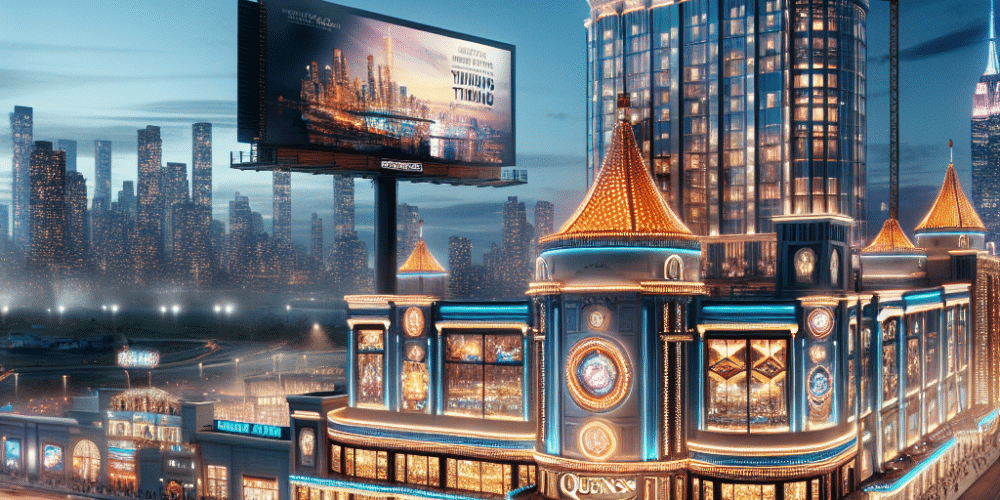Steve Cohen, the owner of the New York Mets, has seen substantial progress in his ambitious plan to develop an $8 billion entertainment and casino complex near Citi Field. This proposal, known as “Metropolitan Park,” is emerging as a leading candidate in the competitive race for three downstate casino licenses in New York.
Cohen’s proposal, in collaboration with Hard Rock International, seeks to transform Queens with a sprawling complex featuring a casino, luxury hotels, diverse dining options, live entertainment venues, and ample community spaces, including a new 25-acre public park. Advocates for the project argue it promises to create tens of thousands of union jobs and generate a consistent revenue stream for both the city and the state.
The momentum behind Cohen’s project is partly due to setbacks faced by competing bids. Two notable proposals in Manhattan have recently hit roadblocks. A Times Square bid backed by Caesars, Jay-Z’s Roc Nation, and SL Green, along with a project from Silverstein Properties near Hudson Yards, were both rejected by local advisory boards following significant neighborhood opposition. With these Manhattan options now sidelined, industry experts suggest that Cohen’s Queens plan, alongside existing racetrack casinos at Aqueduct in Queens and Yonkers Raceway, stands at the forefront, as reported by The New York Post.
Former state regulators believe that Resorts World in Queens and MGM’s Empire City in Yonkers have a competitive advantage due to their existing slot parlors, which could be expanded into full-scale casinos. Among the newcomers, Cohen’s bid is considered the most daring, particularly after overcoming initial resistance in Albany. Earlier this year, state lawmakers approved a zoning change that allows development on the parking lots adjacent to Citi Field, a crucial step for the project’s advancement.
Cohen’s casino bid holds the potential to transform Queens into a year-round entertainment hub. Initially, State Senator Jessica Ramos opposed the project, but the legislation passed through both legislative chambers with strong support, weakening her stance. Other Queens lawmakers, including Senator John Liu and Assemblymember Larinda Hooks, have expressed their approval, citing job creation and infrastructure improvements as key benefits.
Despite the support, regulators face a challenging decision. Cohen’s proposed site lies a mere ten miles from Resorts World, sparking concerns about market saturation. Some policymakers worry that authorizing a new casino so close to existing establishments might cannibalize their customer base.
Beyond economic implications, Cohen’s proposal carries significant symbolic weight. It aims to revolutionize the area surrounding Citi Field by turning it into a year-round destination, rather than merely a summer baseball attraction. Proponents believe this could redefine Queens’ economic landscape and position the borough as a pivotal player in New York’s casino industry. The state Gaming Commission is expected to make its licensing decisions later this year. Until then, Cohen’s proposal, buoyed by the setbacks of glitzy Manhattan competitors, continues to be one of the most promising contenders.
However, not everyone is convinced of the project’s benefits. Critics argue that the introduction of another casino could lead to increased traffic congestion and strain existing infrastructure. Additionally, there are concerns about the potential social impact, including gambling addiction and crime rates, which often accompany large-scale casino developments.
Moreover, the competitive landscape in New York’s casino industry is fierce. With established entities like Resorts World and MGM having already carved out significant market share, any new entrant will have to offer something truly unique to attract patrons. Some industry insiders suggest that Cohen’s proposal might need to differentiate itself further, perhaps by integrating cutting-edge technology or immersive entertainment experiences, to sway both regulators and future clientele.
On the flip side, supporters counter that Metropolitan Park’s holistic approach, which includes community spaces and recreational areas, provides a balanced mix of entertainment and communal benefits. They emphasize that the project is not merely about gambling but is designed to serve as a cultural and social beacon for Queens, potentially drawing visitors beyond the traditional casino crowd.
The looming decision by the state Gaming Commission will ultimately determine the project’s fate. As the deadline approaches, all eyes are on how Cohen’s vision aligns with New York’s broader economic and social objectives. Regardless of the outcome, the unfolding drama underscores the high stakes involved in transforming one of the world’s most dynamic cities with an entertainment project of this scale.
In the meantime, stakeholders across the board, from local residents to business leaders, are watching closely. The potential transformation of Queens into a year-round entertainment destination could have profound implications, not just for the borough but for the entire New York metropolitan area. Whether this vision materializes hinges on a complex matrix of regulatory approvals, economic viability, and community support, all of which are still in play as the licensing decision looms.

Garry Sputnim is a seasoned journalist and storyteller with over a decade of experience in the trenches of global news. With a keen eye for uncovering stories that resonate, Alex has reported from over 30 countries, bringing light to untold narratives and the human faces behind the headlines. Specializing in investigative journalism, Garry has a knack for technology and social justice issues, weaving compelling narratives that bridge tech and humanity. Outside the newsroom, Garry is an avid rock climber and podcast host, exploring stories of resilience and innovation.
















